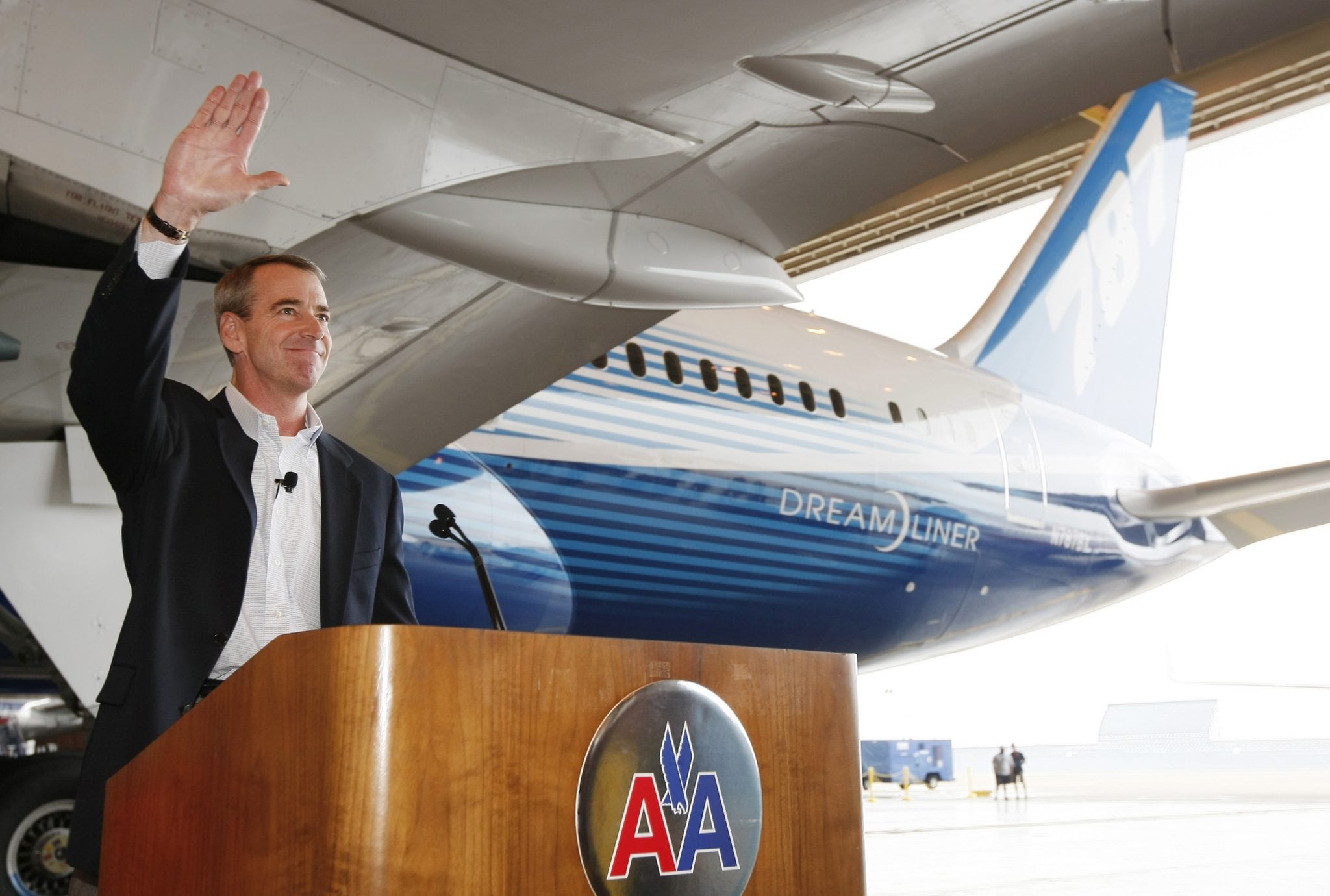The only parachutes on U.S. airlines are golden: Big exit packages at the top

Skift Take
The judge handling the AMR Corp. bankruptcy put off a decision yesterday on American Airlines CEO Tom Horton's proposed $20 million exit package, but the big number is fairly typical of the massive golden parachutes that legacy airline CEOs involved in mergers have come to love and expect.
For better or worse, United Airlines, which emerged from bankruptcy in 2006 and merged with Continental Airlines in 2010, gave United CEO Glenn Tilton a $16.8 million send-off. His total compensation included a $2.7 million discretionary bonus awarded in the run-up to the merger.
And, Jeff Smisek, who took the helm at United after the merger, pocketed a $4.4 million pay hike as his reward for going along with the marriage.
The other recent merger of legacy airlines was Delta-Northwest in 2008. In that pairing, Northwest CEO Douglas Steenland departed the scene with $18.3 million in hand, while Delta CEO Richard Anderson -- out of character for most airline CEOs -- waived any additional compensation for the tie-up.
Northwest and Delta had also gone the bankruptcy route, completing their bankruptcies in 2007.
In contrast with the United-Continental and Delta-Northwest mergers, American Airlines under Horton has yet to emerge from bankruptcy protection, although it is not too far off.
The ultimate fate of Horton's golden parachute isn't clear. Judge Sean Lane reportedly said in court that a decision on Horton's compensation should be part of the bankruptcy reorganization plan, and not part of the merger agreement with US Airways, which he approved. A further elaboration on the judge's reasoning isn't possible because Lane has yet to issue his written decision.
The U.S. trustee, a bankruptcy watchdog on behalf of the federal government, objected to Horton's bloated payout.
"It’s another example of CEOs' shameful Golden parachutes, and in this case Horton’s performance hardly justifies the amount," argues Scott Hamilton of Leeham Co., an aviation consultancy.
But, was Tilton's farewell any more appropriate?
"I wasn’t impressed with Tilton’s leadership, either," Hamilton says. "He appeared more focused on Tilton than on running a quality airline. Clearly Continental’s management likewise was unimpressed with United’s management and with Tilton, given that they wouldn’t touch a merger unless UAL leadership was gone."
Hamilton adds: "The same is obvious with US Airways and American."




